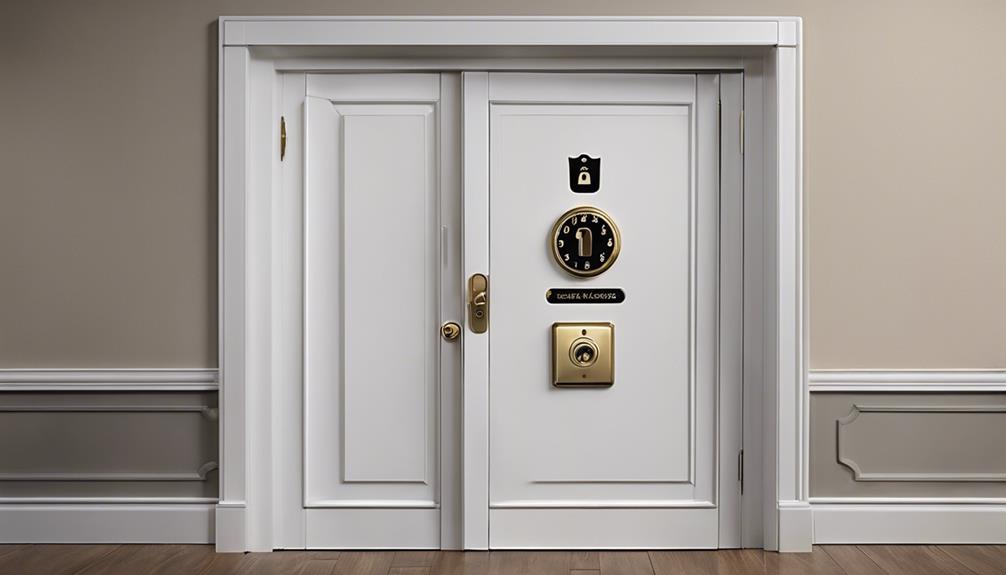Exploring the intersection of dementia and anesthesia, we encounter a complex set of difficulties that can make any medical appointment feel like solving a puzzle.
As we navigate through the intricacies of administering anesthesia to individuals with cognitive impairments, it becomes imperative to understand the nuanced impact it may have on their cognitive function.
This delicate balance between ensuring safe surgical outcomes and preserving cognitive health raises important questions about the long-term implications of anesthesia exposure in dementia patients.
Key Takeaways
- Choose regional over general anesthesia for dementia patients.
- Proper medication management crucial in reducing postoperative delirium risk.
- Anesthesia type impacts dementia risk and cognitive decline.
- Individualized approach essential to address unique needs of dementia patients.
Anesthesia Risks in Dementia Patients
Patients with dementia face an increased risk of postoperative delirium following exposure to anesthesia. This heightened susceptibility is due to the impact of anesthesia on brain function, potentially exacerbating cognitive decline in dementia patients.
Proper medication management is paramount in this population undergoing anesthesia to mitigate the risk of postoperative delirium. When considering anesthesia options for individuals with dementia, healthcare providers may lean towards using local or regional anesthesia over general anesthesia. These alternatives could help reduce the likelihood of postoperative delirium by minimizing the systemic effects associated with general anesthesia.
Engaging in detailed discussions with healthcare providers regarding the choice of anesthesia is crucial for optimizing outcomes in dementia patients undergoing surgical procedures. By carefully weighing the risks and benefits of different anesthesia modalities and tailoring the approach to individual patient needs, healthcare providers can help ensure a smoother postoperative course for individuals with dementia.
Managing Anesthesia for Dementia Individuals

When considering anesthesia management for individuals with dementia, prioritizing local or regional anesthesia to minimize postoperative delirium risk is crucial. Dementia patients are at a higher risk of experiencing postoperative cognitive decline following exposure to anesthesia. Careful medication management is essential for this population undergoing surgery to reduce the likelihood of complications.
Additionally, incorporating intensive recovery therapy can significantly improve post-surgery outcomes for older patients with dementia. Engaging in discussions about anesthesia options with the healthcare team can help optimize perioperative care for dementia patients, ensuring their unique needs are met.
General Anesthetics and Dementia Risk
Inhalation anesthesia poses a heightened risk of dementia development compared to noninhalation anesthesia among individuals undergoing general anesthesia. Studies have shown that the hazard ratio for inhalation anesthesia versus regional anesthesia is 20.16, emphasizing the significant impact on dementia risk in these patients. The annual incidence rates of dementia per 100,000 person-years are notably elevated in individuals who have received general anesthesia as opposed to regional anesthesia. Certain anesthetics such as sevoflurane and isoflurane are linked to inducing structural brain changes that can contribute to cognitive dysfunction and the development of Alzheimer's disease. Multivariate Cox regression analysis has been utilized to evaluate the association between different types of anesthesia and the risk of developing dementia.
| Risk Factor | Hazard Ratio | Incidence Rates (per 100,000 person-years) |
|---|---|---|
| Inhalation Anesthesia | 20.16 | Higher compared to regional anesthesia |
| General Anesthesia | – | Elevated compared to regional anesthesia |
| Sevoflurane & Isoflurane | – | Linked to structural brain changes |
Dementia Risk After Major Surgery

Examination of dementia risk following major surgery and anesthesia reveals a notable 1.99-fold increase in patients aged 50 and above. This higher risk is a significant concern for patients undergoing major surgical procedures. Understanding the implications of this risk is crucial for healthcare providers.
- Diversity in Anesthesia Types: Different anesthesia methods are linked to varying risks of dementia post-major surgery. Inhalation anesthesia, for instance, has been associated with higher dementia rates compared to regional anesthesia. This highlights the importance of selecting the most appropriate anesthesia type for older patients to mitigate cognitive decline.
- Neurodegeneration Acceleration: Exposure to general anesthesia during major surgery may accelerate the neurodegeneration process that's closely linked to dementia. This emphasizes the need for careful consideration and monitoring of anesthesia use in older patients to minimize the risk of cognitive impairment.
- Risk Factors: Older age, cumulative anesthesia exposure, and comorbid conditions such as depression are significant risk factors for the development of dementia after major surgery. Identifying and addressing these factors proactively can help reduce the overall risk of cognitive decline in this patient population.
Exploring the Anesthesia-Dementia Connection
Our investigation delves into the intricate relationship between anesthesia and dementia, shedding light on the potential connections and implications for patient cognitive health.
Studies have shown that the type of anesthesia used during surgery may play a crucial role in the development of cognitive decline and dementia. Research indicates that patients who undergo surgery with general anesthesia have higher rates of dementia compared to those who receive regional anesthesia.
Exposure to anesthetics such as sevoflurane and isoflurane has been associated with inducing structural changes in brain vascular endothelial cells, potentially contributing to cognitive dysfunction. Furthermore, anesthesia exposure has been linked to postoperative delirium, which can escalate the risk of Alzheimer's disease.
Elderly patients are particularly vulnerable, experiencing postoperative cognitive decline and delirium following anesthesia, with long-term cognitive effects varying in severity. These findings highlight the importance of understanding the impact of anesthesia on brain changes and dementia risk, especially in elderly populations.
Frequently Asked Questions
Is Anesthesia Safe for Dementia Patients?
Anesthesia is generally safe for dementia patients, but risks of postoperative delirium exist. Careful consideration of anesthesia type and medication management is vital. Optimal outcomes can be achieved through discussions with the healthcare team regarding anesthesia options.
Post-surgery, intensive recovery therapy can aid in preventing cognitive decline in dementia patients. Overall, a tailored approach to anesthesia is crucial for the safety and well-being of individuals with dementia undergoing surgery.
Who Shouldn't Go Under Anesthesia?
When considering who shouldn't undergo anesthesia, individuals with a history of adverse reactions to anesthesia, severe respiratory or cardiovascular conditions, untreated psychiatric issues, or substance abuse challenges should proceed with caution.
Understanding and adhering to pre- and post-anesthesia instructions is critical for a successful outcome.
It's essential to evaluate each person's unique circumstances to ensure safe anesthesia administration and postoperative care.
Can Dementia Patients Have Surgery?
Yes, dementia patients can undergo surgery with appropriate considerations. It's crucial to assess risks and benefits, considering potential postoperative challenges and cognitive decline. Tailoring anesthesia choices to minimize cognitive side effects is essential.
Incorporating cognitive evaluations in preoperative assessments optimizes care for these patients. Collaboration with a multidisciplinary team can significantly enhance surgical outcomes for individuals with dementia.
Is Sedation Safer Than General Anesthesia?
Yes, sedation is often considered safer than general anesthesia for certain procedures due to its lower risk of complications. Sedation involves administering medications to relax and calm patients, allowing them to remain conscious but relaxed during procedures.
In contrast, general anesthesia induces a reversible loss of consciousness and is typically used for more complex surgeries. The choice between sedation and general anesthesia depends on factors such as the procedure type, patient's health status, and medical team preferences.
Conclusion
As we delve deeper into the relationship between anesthesia and dementia, the intricate connections that lie beneath the surface continue to intrigue and challenge our understanding.
The implications of anesthesia on cognitive health post-surgery are complex and multifaceted, prompting further investigation and consideration in clinical practice.
With ongoing research and advancements in perioperative care, we're on the brink of unraveling the mysteries that surround anesthesia and its impact on dementia risk.
The future holds promising discoveries that will shape the way we approach anesthesia in vulnerable populations.









